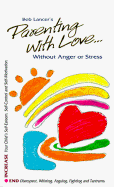Improve Child Behavior
With Peace and Poise Child behavior is significantly influenced by the child’s emotional state. When children feel emotional stress, including unhappiness, insecurity, frustration, or even a hard driving sense of pressure, their behavior problems show it. Just as we parents demonstrate lower performance levels, including poorer relationship skills ,when we are feeling emotionally “off”, so do our children. Their behavior declines when they feel extremely enthused as well. And isn’t this also true of us parents? In an extremely enthused state we make hasty decisions and rash analyses leading to purchases, investments and even relationship choices that we later regret. The more intense the emotional state of the child or parent, the more difficult it becomes to behave responsibly. Children, more so than their parents, are often extremely sensitive and open to the emotional influences present in their immediate environment. This means that the emotional state of the parent produces a similar emotional state in the child, when the two of them are together. This occurs through the sheer presence of that parent. Parents of an excitable child need to be extra careful about getting very excited around that child, or they might set off a display of outrageous behavior. When parents feel the emotional strain of a relationship problem within their marriage, their children are exposed to the “emotional fall out”. This may contribute to sibling rivalry, an increased frequency of tantrums or sulking, relationship problems with classmates or teachers, or other forms of problematic behavior. When parents automatically presume that the solution for a child’s inappropriate behavior is to impose stern discipline measures, they may exacerbate the problem rather than solving it, by increasing the emotional stress on the child. To effectively guide a child into improved self-conduct, we need to understand and identify the emotional influences undermining the ability for the child to behave well The place to begin this work is within ourselves. We parents need to be completely self-honest about our present emotional state, including our mood, attitude and level of motivation. When you notice your emotional state slipping out of the peace and poise of balance and harmony, observe your child closely and you are likely to see signs of your emotion’s impact upon your child. You might notice her smile fade into a frown when she sees you looking emotionally down. When you are feeling frustrated, you might observe your child losing his patience more quickly and more fiercely than usual. If you feel very insecure about money, health or the state of your marriage your child may become clingy and more resistant to your drop-off at preschool. When you feel angry and pressured around your son or daughter, your child may become too physically aggressive. When you feel hostile and rebellious, you may see your child displaying more disrespectful defiance. If you feel a loss of self-confidence and self-esteem because you have not achieved a goal, your child may become shy or begin retreating from challenge. When we parents are in a balanced, harmonious emotional condition we demonstrate better parental judgment, think more clearly and accurately, and generally display a higher level of performance. We also radiate the harmonizing influence of our emotional state and share that with our children, which supports their ability to display their best behavior. To improve child behavior, be honest with yourself about your current emotional condition and work on improving THAT. 
Learn more about the impact of emotion on child behavior, and powerful practices for improving your child's behavior with love, and without anger and stress: Check out my parenting book, my parenting CDs, listen to my Parenting Solutions Radio Show, and/or attend my next Parenting Seminar. |